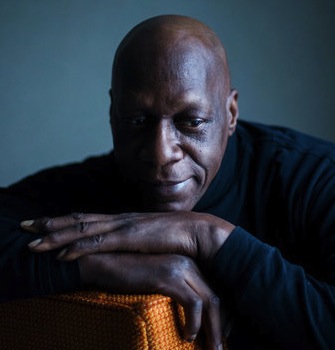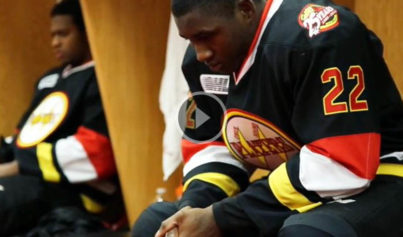
The level of racism James endured in a 13-year career—mostly in the AHL, plus just 14 games over two seasons in the NHL—stunned Ina James, who thought he had a grasp of the scope of hatred her husband experienced.
“My first question was, ‘Why didn’t you tell me?’ “ she said to The New York Times.
When she cried as she spoke those words, James said, “This is why I didn’t tell her.”
James’ book details in depth the racism he encountered in the 1980s as a member of the Buffalo Sabres. For instance, after a game in Boston in ‘82, angry fans blocked the team bus of the Sabres, who had two Black players that season. The fans pelted the bus windshield with a beer bottle into the windshield, called James a vile name and demanded he exit the bus.
Angry, James headed for the door. But coach Scotty Bowman ordered him to return to his seat.
A shoulder injury ended James’s career in 1988, and no one noticed, just as his entry into hockey history was not acknowledged at the time. The fact that no one seemed to notice he was gone did not bother James; he was mentally fatigued from all he put up with over his career in the AHL and NHL.
“There is the only way I can explain it for people who don’t understand that feeling,” James, 57, said. “Let’s start with women. What’s the worst thing you can call a woman? Imagine having one of those words thrown at you every three seconds for 60 minutes. Now multiply that 40 road games a year.”
In the book, James recounts a story in Salem, Va., in 1981 when a teenager brought a watermelon to the game to give to him.
The Times interviewed Warren Skorodenski, a former Springfield, Mass., Indians goalie who spent five seasons in the N.H.L, who said he recalls some Springfield, Mass. Fans dressing in Ku Klux Klan hoods and linesmen had to spend stoppages of play to retrieve bananas thrown on the ice at James.
“It was disgusting,” Skorodenski said. “To be in his shoes, I just couldn’t imagine.”
As a Black person growing up playing hockey on Long Island, James was a rarity—and that’s where the racism first started. He said in his book that disgusting slurs were hurled at him when he was 13 during a youth tournament in Michigan.
“When I started skating, I set out to be a hockey player, not a black hockey player,” he wrote. “However, the two concepts quickly became intertwined. And not by choice. From early on, there were some people who were determined to prove that being black and being a hockey player were mutually exclusive.”
When a shoulder injury ended James’s career in 1988, he seemingly vanished. He was emotionally drained, he said. James returned to Long Island for about a year after retirement before relocating with his wife Niagara Falls, where they have lived mostly in obscurity.
He said he contemplated writing a book right after he stopped playing. But he was not ready…until now.
“I had to deal with it in my own mind, and pretty much forgive,” James said. “That’s the only word that comes close to it. Just to cleanse my own mind of it all, and to think.”


